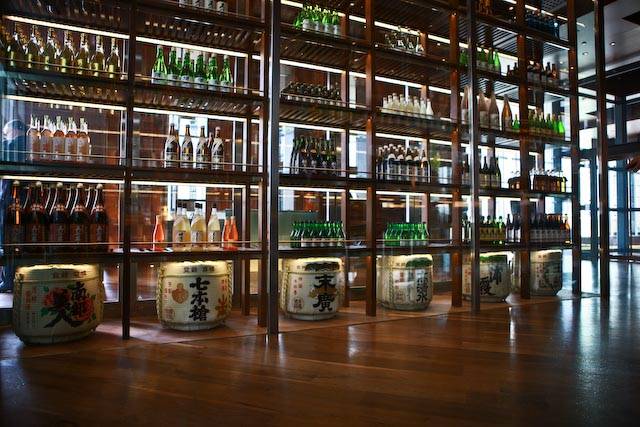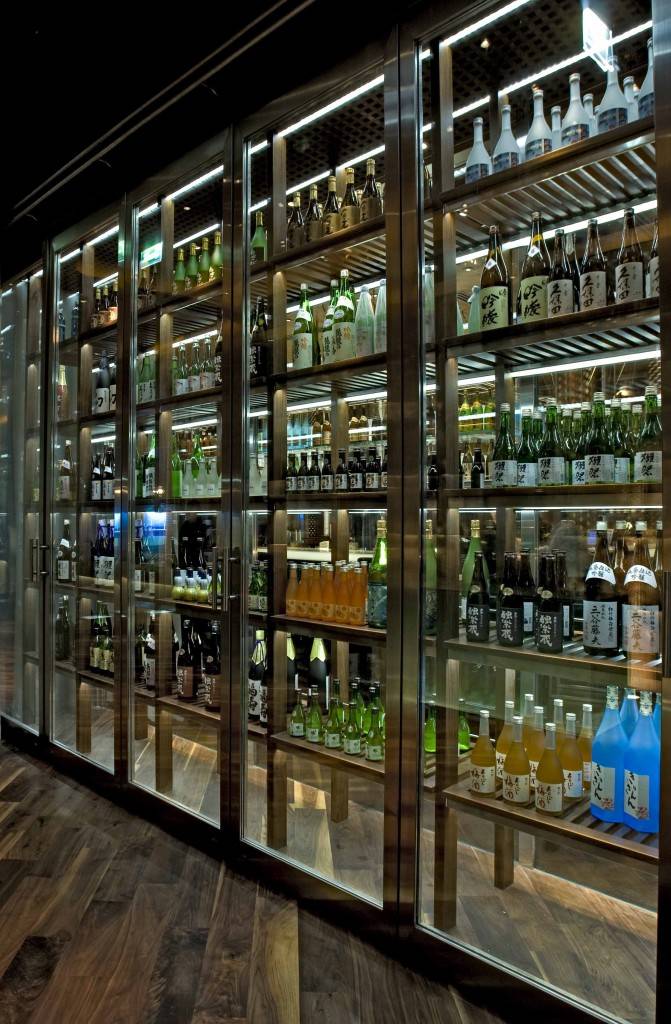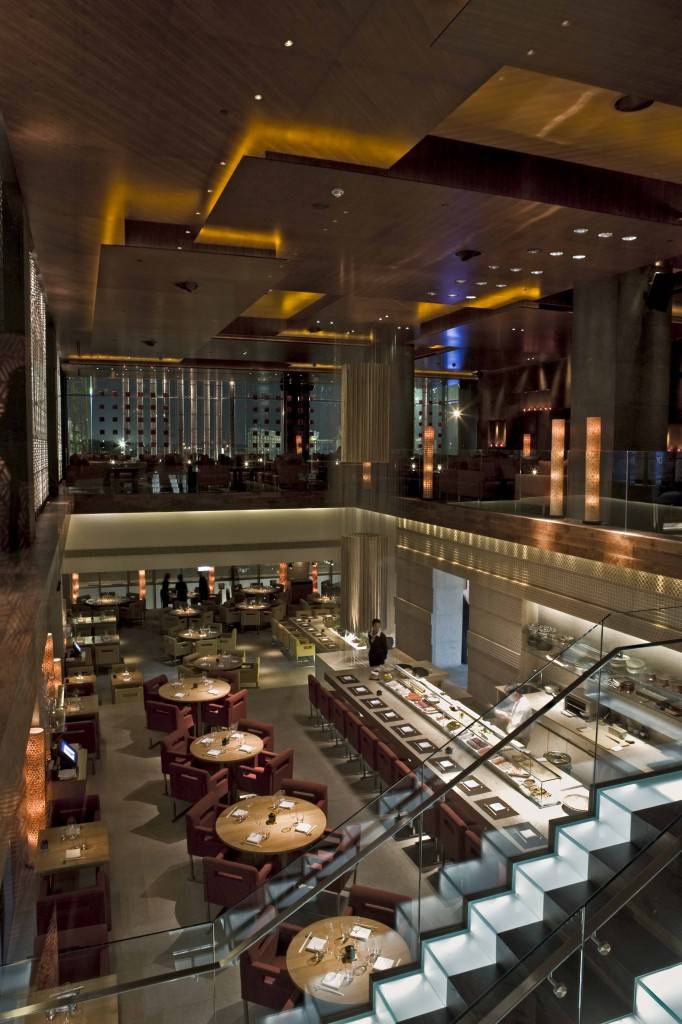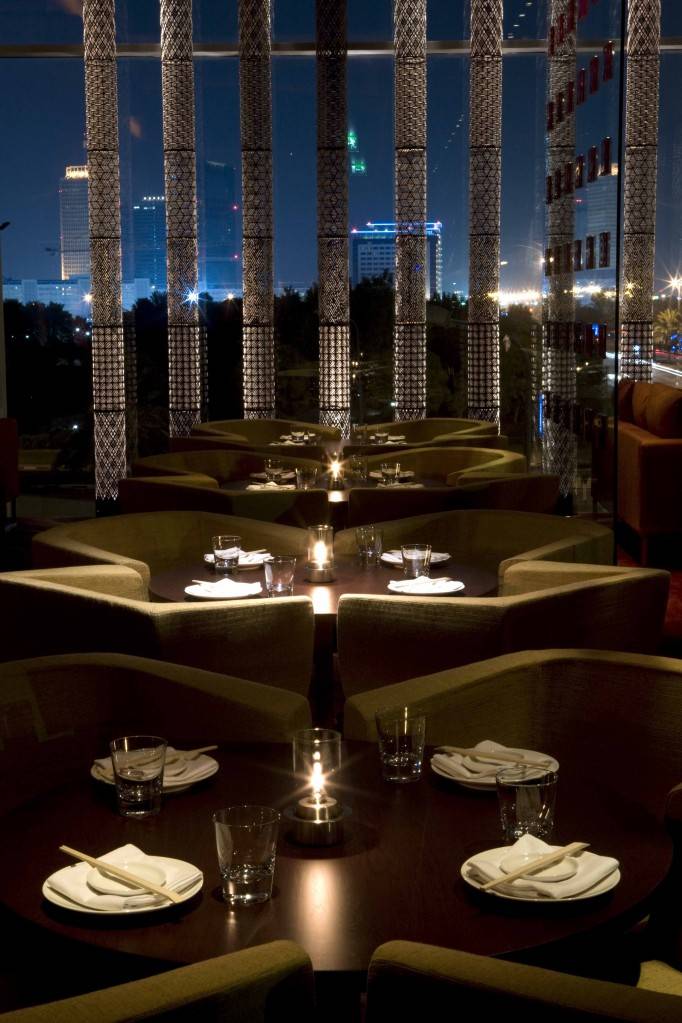With a history which spans as far back as 4000 B.C. in ancient China, it was the Japanese who began the mass production of this simple rice wine once known as the “drink of the Gods.” Sake still remains one of the most popular alcoholic beverages in Japan and is quickly become an international favorite at hip Japanese restaurants and bars throughout the world. At a recent sake tasting at Zuma restaurant I gained a firsthand educational experience of this marvelous drink led by expert sommeliers and fine-dining specialists. There is an art to sake which is parallel to the Dionysian experience of fine wine.
Led by Zuma’s head sommelier Stefano Cattelan, we were treated to eight new exceptional sakes encompassing a range of different scents, tastes and textures.
The first one, Hatsukame, Daiginjo from Shizuoka near Tokyo and Mount Fuji, Honshu, is a sake which boasts of a strong sweet and fruity taste. Anaze, Ginjo, from Kyoto near Osaka and Kobe, Honshu, is a slightly sweet sake with a smooth and refreshing texture. The prestigious Isojiman, Junmai sake from Shizuoka near Tokyo and Mount Fiji, Honshu, has a rich, full and strong fruity flavor which gives the impression of a glass of sweet wine. Encompassing a romantic and regal sense, the taste of this sake becomes seemingly more profound as it sits in the glass. Haginishiki, Junmai Ginjo, also from Shizuoka and Mount Fiji, is a light dry sake with a delicate herbaceous character. Kamoshibito, Junmai from Aichi near Nagano, Honshu, is an aromatic and fruity sake with flavors akin to melon and watermelon and a slightly dry aftertaste.
One of the most popular sakes and one of my personal favorites is Kokuryu, Junmai Ginjo from Fukui which faces the sea of Japan in Honshu. A very distinctive taste, this is a dry sake with a full and rich flavor. Kunbeeki, Junmai from Aichi near Nagano in Honshu, is a bold dry sake with a savory flavor and smooth texture. Shichida, Junmai from Saga facing the sea of Japan in Kyushu, has a very full and fruity flavor with a sharp and slightly dry aftertaste.
Served hot or cold, sake is the perfect accompaniment to any Japanese meal. Preference for a dry or sweet sake ultimately depends on the consumer’s desires; each sake blends itself well with all Japanese delicacies.
It’s easy to see why believers of the Shinto faith offered such a rich drink to their Gods and to purify their temples. There is something almost magical about sake’s character: From dry and crisp to sweet and sparkling the exceptional qualities of this Japanese beverage are satisfying in an almost unearthly way.
Try these eight sakes at Zuma restaurant located in Dubai International Financial Center (DIFC).
04 425 5660
























